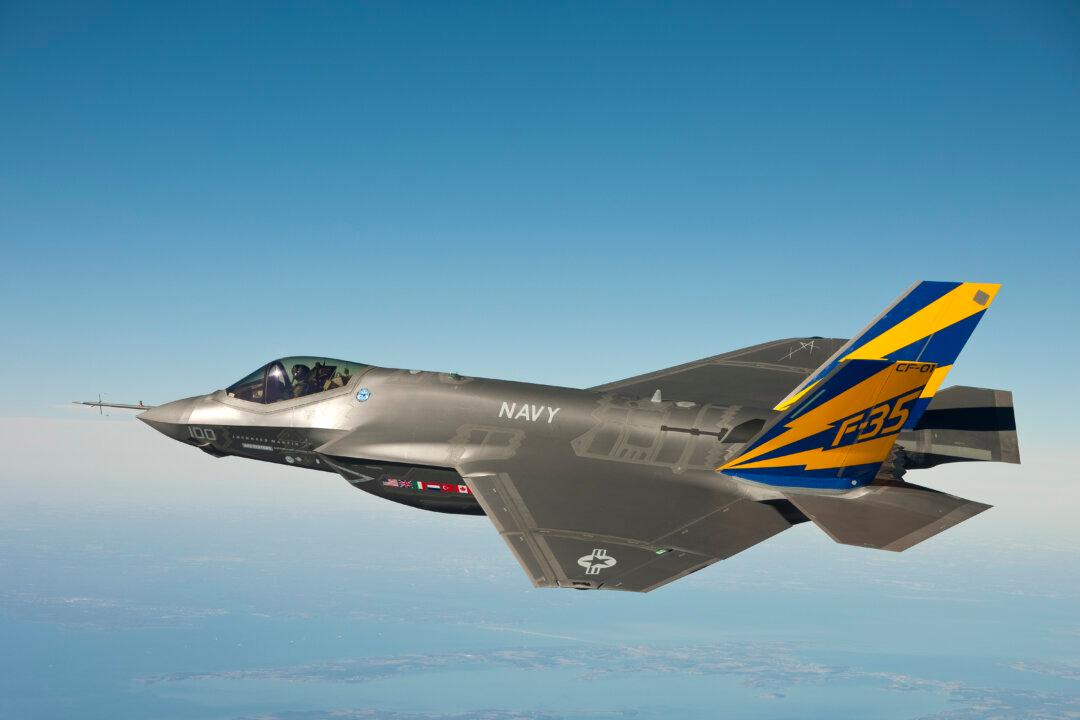TOKYO—Japan’s Cabinet approved a record-high military spending plan Thursday, endorsing proposals to purchase pricey U.S. surveillance drones and F-35 fighter jets as Tokyo steps up cooperation with Washington amid China’s increasingly assertive activity in regional seas.
The 5.1 trillion yen ($42.1 billion) proposal is part of a 96.7 trillion yen ($800 billion) national budget plan for the year beginning April 2016, also an all-time high. The entire package requires parliamentary approval.
Military spending would rise 1.5 percent from this year, the fourth annual increase under Prime Minister Shinzo Abe, who ended a decade of defense budget cuts.
The defense budget is the first since Japan enacted new security legislation in September enhancing the country’s military role and since Japan revised its bilateral defense guidelines with the U.S. earlier in the year to allow broader cooperation between the two allies.
The new security law divided Japanese public opinion, with opponents saying it would increase the possibility of Japan becoming embroiled in a U.S.-led war.
Japan is bolstering defense of its southern islands, where it has a territorial dispute with China. The budget plan also includes the purchase of an advanced Aegis radar-equipped destroyer with missile defense capability, submarine construction and sonar development.
In Beijing, Chinese Foreign Ministry spokesman Hong Lei urged Japan to “draw lessons from history, adhere to the path of peaceful development, and play a constructive role in safeguarding regional peace and stability.” He said Chinese defense policy is “defensive in nature,” and its military spending is kept at “a reasonable level.”
Japan’s Defense Ministry plans to spend 14.8 billion yen ($118 million) next year for part of a multibillion-dollar, multi-year purchase of three “Global Hawk” unmanned drones, as well as 138 billion yen ($1.1 billion) for six F-35 fighter jets and 23 billion yen ($190 million) for a Boeing KC-46A midair refueling aircraft.





